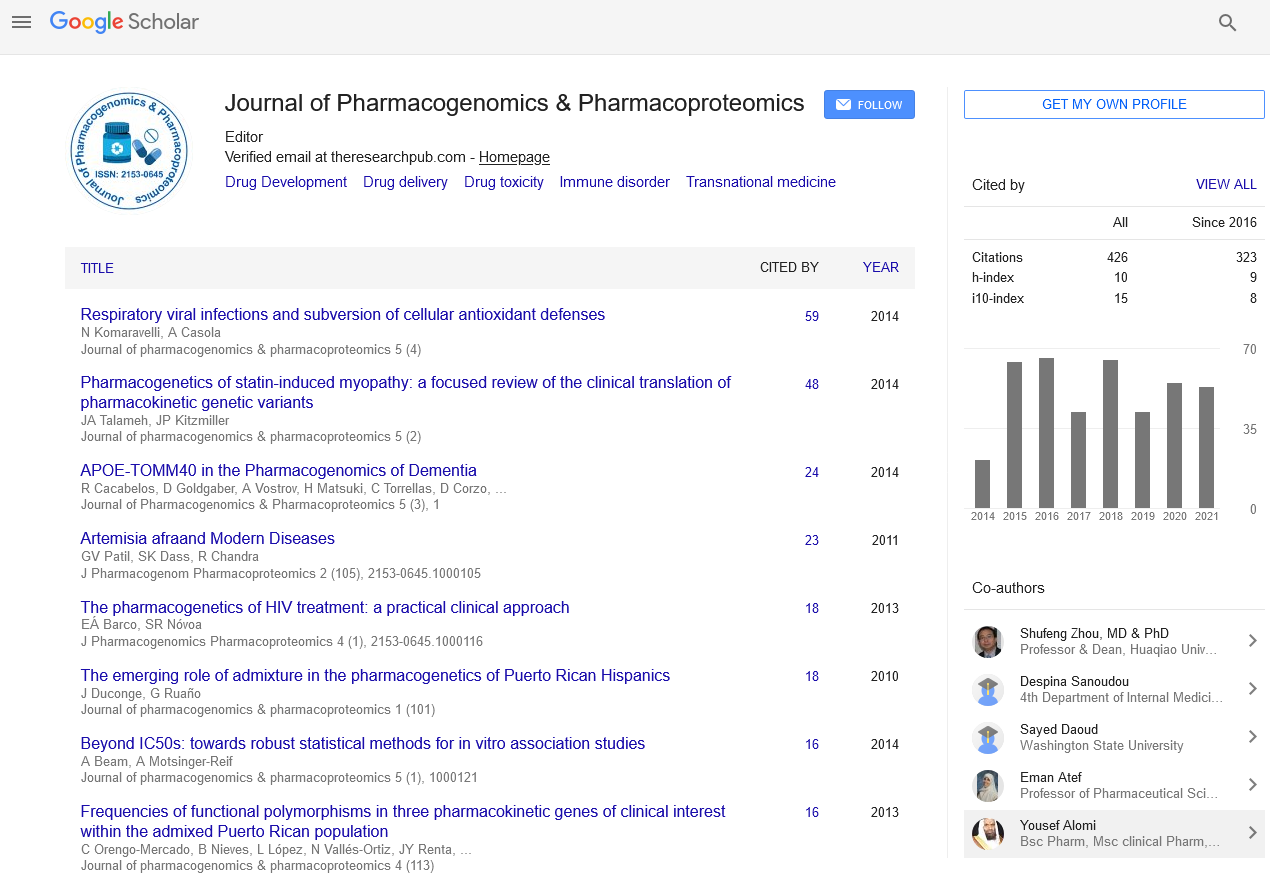Indexed In
- Open J Gate
- Genamics JournalSeek
- Academic Keys
- JournalTOCs
- ResearchBible
- Electronic Journals Library
- RefSeek
- Hamdard University
- EBSCO A-Z
- OCLC- WorldCat
- Proquest Summons
- SWB online catalog
- Virtual Library of Biology (vifabio)
- Publons
- MIAR
- Euro Pub
- Google Scholar
Useful Links
Share This Page
Journal Flyer

Open Access Journals
- Agri and Aquaculture
- Biochemistry
- Bioinformatics & Systems Biology
- Business & Management
- Chemistry
- Clinical Sciences
- Engineering
- Food & Nutrition
- General Science
- Genetics & Molecular Biology
- Immunology & Microbiology
- Medical Sciences
- Neuroscience & Psychology
- Nursing & Health Care
- Pharmaceutical Sciences
Lung cancer epigenetics: Lessons from the mouse embryo to develop novel approaches for early diagnosis and therapy of lung cancer
2nd International Conference on Predictive, Preventive and Personalized Medicine & Molecular Diagnostics
November 03-05, 2014 Embassy Suites Las Vegas, USA
Guillermo Barreto
Scientific Tracks Abstracts: J Pharmacogenomics Pharmacoproteomics
Abstract:
Several genes that are relevant during embryonic lung development share a similar gene structure with two distinct promoters driving the expression of two different transcripts. Expression of both transcripts from the same gene is complementary and is differentially regulated during embryonic development, with one transcript been expressed during early stages of lung development (embryonic isoform) and the other transcript been expressed at later stages and in adult lung (adult isoform). Interestingly, the embryonic isoforms are enriched in lung tumors of mice as well as of human, making them good candidates for lung cancer diagnosis. In addition, forced expression of the embryonic isoforms in murine adult lung is sufficient to induce hyperplasia with characteristic of lung adenocarcinoma supporting their oncogenic potential. Moreover, we found that the complementary expression of both isoforms from the same gene is mediated by differential promoter usage that is regulated by mechanisms that involve changes in the chromatin structure as specific histone modifications and dynamic DNA methylation. In conclusion, we suggest that an embryonic specific phenotype is acquired during lung cancer progression and this can be used for early diagnosis of lung tumors. In addition, approaches to suppress embryonic specific isoforms can be exploited to develop therapeutic strategies against lung cancer.
Biography :
Guillermo Barreto is leader of the LOEWE Research Group Lung Cancer Epigenetic at the MPI for Heart and Lung Research and Faculty Member of the University of Giessen Lung Center (UGLC) and the Excellence Cluster Cardio-Pulmonary System (ECCPS). His research activities are centered on the epigenetic mechanisms that regulate the determination of the respiratory cell fate in the primitive foregut, leading to the formation of the lung bud and later on to the cellular diversity generated in the developing lung, with particular focus on those mechanisms that are recapitulated in several lung diseases.


